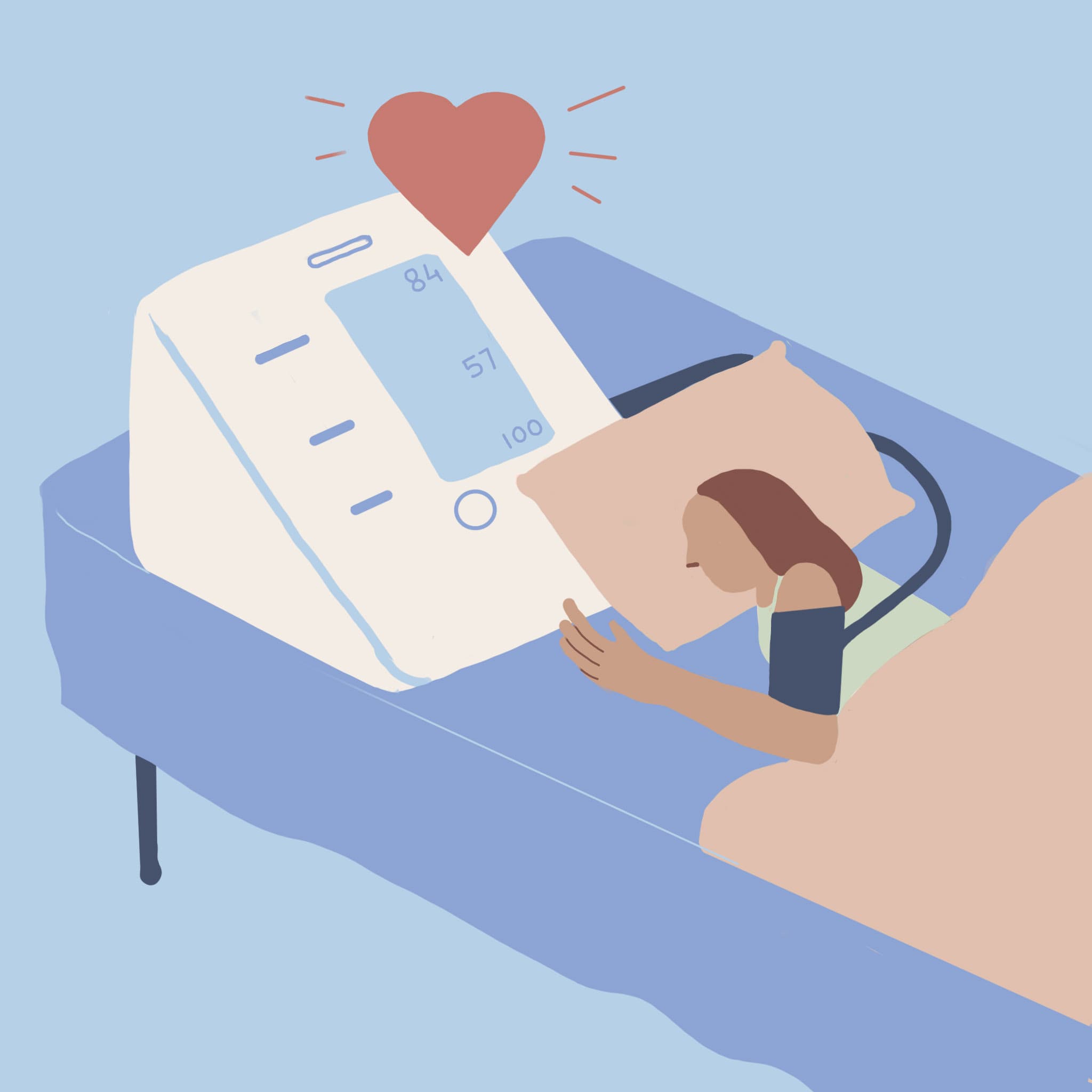Mid-Day Naps and Blood Pressure
Various Mediterranean and Latin American nations like Spain and Argentina practice afternoon naps or siestas. They are ordinarily short naps or rest times of nearly an hour that are taken in the afternoon. A few researchers have tracked down that taking a nap isn't simply connected to lowering blood pressure levels, yet also improved sleep quality and wake execution.
Napping could help battle high blood pressure. As indicated by new research introduced at the American College of Cardiology's Annual Scientific Session, individuals who take a nap for about an hour daily had comparable drops in blood pressure seen with healthy lifestyle changes and a few medications. This was the first study to divide the participants into two napping groups (one with a daytime nap and one without) and track participants’ blood pressure throughout the day. It was conducted by researchers at Asklepieion General Hospital in Voula, Greece.
Researchers tracked down that the individuals who napped had fundamentally lower average blood pressure over the 24-hour time frame than the individuals who didn't sleep. For every hour of napping, the average systolic blood pressure lowered by 3 mmHg. Another examination found that individuals who sleep under six hours a night have more risk of creating hypertension by 20%.
Nocturnal hypertension
Nocturnal hypertension is a condition where the nighttime BP is constantly higher than normal (>120/70 mmHg). Research has perceived it as a critical risk factor for heart and brain disease. Monitoring blood pressure (BP) fundamentally raises our awareness of nocturnal hypertension and studies to show the hazardous impact of high blood pressure on organs like kidneys, eyes, heart and the brain. Normally during the night, BP levels drop in comparison to daytime values by 10-20%. However, in this condition, it may not show any decrease or may even increase as compared to the daytime values.
The main reasons associated with nocturnal hypertension could be overthinking, sleeplessness, stress, obstructive sleep apnoea (OSA), obesity, high salt intake in salt-sensitive people and old age. This condition has been increasingly associated with serious age-related issues such as stroke, heart disease, kidney disease, Alzheimer's etc. Since we are unlikely to get our blood pressure checked at night and since we also don’t experience any symptoms in the initial stages, nocturnal hypertension is likely to be missed for a long time. During sleeping/lying down, our body experiences increased blood flow back to the heart which may lead to increased stress on the heart wall. This increased volume of blood (that is a function of gravity) and increased blood pressure is potentially damaging for kidneys.
Do afternoon naps affect heart health?
One reason could be the changes in day-night blood pressure. At night, our blood pressure and heart rate decrease as we sleep. Some researchers hypothesize that lower blood pressure reduces strain on the heart and decreases the risk of a fatal heart attack. Most studies have focused on cardiovascular behaviour in night-time sleeping. although, a recent study by the American College of Cardiology provides a detailed description of changes in the cardiovascular function of napping in healthy individuals, comparing napping with other daytime activities such as standing and lying down, without going to sleep.
Although afternoon siestas are now considered a luxury, they were once thought to be a necessity for physical health, particularly for farmers. The point of siestas was to sleep through the hottest part of the day and avoid the midday sun to restore energy levels. Now, researchers are finding that naps may offer other important health benefits—including improvements in cardiovascular health, sleep quality, and mental acuity.
Who is most at risk of losing sleep?
- High blood pressure caused by lack of sleep is highest in middle-aged adults.
- People who work long hours in high-workload and stressful jobs and
- People with other risk factors for hypertension are more likely to have raised blood pressure after long term poor quality sleep.
The normal daytime BP is taken to be at 120/80 mmHg however, the new guidelines by American Heart Association now categorize 130/80 BP daytime reading and not the earlier used 140/90 mmHg daytime reading as Hypertension stage I. It may sound scary, but it may have the right intentions behind it; as it brings a lot more people under this category, this may prompt them to bring about lifestyle changes and start on medication in a timely manner, before any damage to the body begins. If you are in this 130/80 range, reducing your blood pressure proactively can protect you from a heart attack, stroke, kidney disease, eye disease, and even cognitive decline. The goal of lowering down the categorical value of Hypertension stage I is to encourage you to treat your high blood pressure seriously and to take action to bring it down, primarily using lifestyle modifications
Benefits of mid-day naps
Certain lifestyle changes can lower blood pressure as much as medications can, and sometimes even more. Here are some evidence-based health benefits of napping:
- Midday sleep may lower blood pressure levels to a similar extent as other lifestyles change. For example, reducing salt and alcohol in your lifestyle can bring blood pressure levels down by 3 to 5 mmHg. These findings are important because even a small drop in blood pressure as 2 mmHg can reduce the risk of cardiovascular breakdown (like a heart attack) by up to 10%.
- Mid-day sleep decreases average and day [systolic blood pressure/diastolic blood pressure] in hypertensive individuals. Its effect is equally powerful as other major lifestyle changes and is independent of the dipping status of patients. Some of you might take a low-dose blood pressure drug, say, which can lower your level an average of 5 to 7 mm Hg, while a nap could reduce overall blood pressure an average of 5 mm Hg, many studies suggest.
- A midday nap might also improve your disposition, lower tension, and decrease the risk of heart disease. The National Sleep Foundation suggests that regular, short naps can help lower tension, which decreases your risk of heart disease.
- Napping can help erase that sleep-deprived irritability for people who have sleepless nights. But napping isn’t just beneficial for lowering your blood pressure. It also enhances various facets of waking performance—particularly alertness, vigilance, logical reasoning, and reaction time. It also decreases sleep latency, exhaustion, and fatigue.
Ways to assure a midday nap
Napping during a day isn’t too hard if you schedule it properly. Here are some ways to assure that you have a good, uninterrupted mid-day nap.
- Keep naps short. Aim to nap for only 15 to 20 minutes.
- Take naps in the early afternoon. Napping after 3 p.m. can interfere with night-time sleep. 1-3 pm is a natural slow-down time for our bodies. This time is optimal, since usually after lunchtime, your blood sugar and energy start to lower down. And naps could help you rejuvenate while keeping your blood pressure levels low.
- Create a restful environment. Nap in a quiet, dim light place with a comfortable room temperature and few distractions.
Final Words
Emerging evidence suggests that napping could do more than just renew your energy levels and mood. Several researchers have found that taking a siesta is not only associated with lowering blood pressure levels, but also improving sleep quality and wake performance. Naps are more than just a luxurious way to boost your energy levels. People have been taking naps for thousands of years, a practice that dates back to the ancient Muslim culture, where it takes a religious dimension for some practitioners. But, the concept of napping has perhaps become most popular through siestas, which originated in Spain but has spread globally.
Health experts do not want to encourage you to sleep for hours on end during the day, but on the other hand, you shouldn’t feel guilty if you take a short nap, given the potential health benefits. Keep in mind, a short nap is a wiser choice than sipping a latte if you need a mid-day reboot since caffeine consumption in the afternoon or evening can negatively affect your nighttime sleep
Disclaimer - This information is provided for educational purposes and should not be construed as medical advice. Please consult with your healthcare practitioners before undertaking any changes in your diet or adding supplements.
ProactiveForHer is a digital clinic for women, offering accessible, personalized, and confidential health-care solutions. We offer products and services for out-patient health concerns of Indian women, across their lifetime - from puberty to pregnancy to menopause. To know more on the sexual and reproductive health of women, visit https://www.proactiveforher.com/

